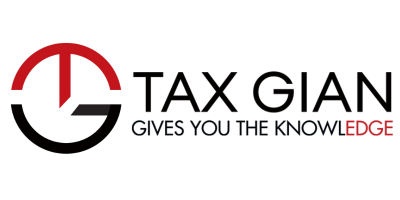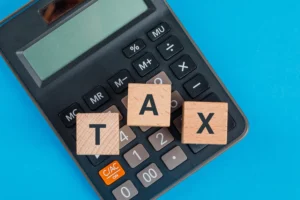The latest amendments to the UAE VAT Executive Regulations (Cabinet Decision no. 100 of 2024), effective from 15 November 2024, bring more changes; some even apply retroactively. Ignoring these could mean incorrect tax filings, denied input VAT recovery, and legal troubles. Small mistakes can cost more in the long run.
Tax Gian, one of the notable VAT consultants in the UAE, helps you understand what businesses need to know about the latest VAT amendments and their impact on their very business.
1. Expanded VAT Exemption for Financial Services
One of the notable updates is VAT exemption under Article 42. It is followed by;
- Fund Management Services
Services by fund managers to licensed investment funds are now VAT-exempt. This covers managing fund operations, investments, and monitoring performance.
- Virtual Assets
The transfer and management of virtual currencies and assets are now exempt from VAT, with changes applied retroactively from 1 January 2018. This also includes activities like safekeeping and enabling control over such assets.
Impact: These exemptions reduce invoicing needs but also make input VAT recovery harder, especially for fund managers. Companies are recommended to re-check old filings and clarify input VAT eligibility with the help of VAT agents in the UAE
2. Flexibility for Zero-Rated Exports
Under Article 30, the documentation rules for applying the zero rate on goods export have been clarified. Previously, many businesses failed to meet strict document demands.
Now accepted documents include:
- Customs declarations
- Bill of lading
- Official proof of export
- Evidence of customs duty suspension
3. Restrictions on Zero-Rated Services
The zero rate for exported services under Article 31 has been limited further. If your service falls under specific place-of-supply rules (such as real estate or restaurant services), the zero rate won’t apply anymore.
Also affected:
- Installation services linked to goods
- Transportation services
- Cultural and hospitality services
Impact: Businesses offering these services to clients outside the UAE may lose eligibility for the zero rate and need to be considered as Out Of Scope for VAT.
4. Clarification on International Transport Services
Changes in Article 33 now state that the domestic leg of an international transport service can only be zero-rated if done by the same supplier handling the international leg. Subcontracted services for first-mile or last-mile delivery no longer qualify.
Impact: Logistics companies and subcontractors are recommended to recheck their contracts and VAT treatment to avoid errors. VAT consultants in Dubai can help businesses with this.
5.VAT on Transport-Related Services
New conditions in Article 35 explain when services connected to vehicles, ships, or aircraft can be zero-rated.
Condition: The service (e.g., repair or maintenance) must be performed on the vehicle itself to qualify for zero rating.
Impact: Service providers need to check where and how the work is done to apply the correct VAT. They can also take assistance from VAT agents in Dubai in this case.
6. Input VAT Recovery on Health Insurance
Previously, businesses couldn’t recover VAT on employee health insurance unless legally required.
Now, under Article 53, input VAT recovery is allowed for:
- One spouse
- Up to three children under 18
This is allowed even when not required by local law.
Impact: This change brings tax relief and eases the admin burden. Companies can now claim VAT on broader employee benefits.
7. Exemptions for Government Entities and Charities
New Article 3 (bis) introduces key exemptions:
- Property grant, transfers or disposed between government entities are not taxed.
New Article 5 Exceptions related to Deemed Supply:
- Certain free-of-charge supplies under AED 250,000/year between government bodies or charities are excluded from VAT.
Impact: These changes cut costs and reduce compliance headaches for public and non-profit organisations.
8. Other Notable Updates
- Tax Invoices: Summary invoices must now be issued within 14 days from the month’s end.
- Input VAT Recovery Rules: New rules for partial-year tax periods and group changes.
- Fixed Input Rate Option: Businesses may now apply for a fixed input VAT recovery percentage.
- Composite Supplies: Clearer guidance on VAT treatment for packages that include multiple services or goods.
- Profit Margin Scheme: Purchase price now includes additional costs and fees.
- VAT Deregistration: FTA can cancel registration if requirements are not met.
Still unclear? Ask tax agents in the UAE for better insights.
What Should Businesses Do Now?
- Review all transactions: Especially exports, virtual assets, and services.
- Revisit old returns: Some rules apply retroactively to 2018.
- Update documentation processes: Especially for exports and tax invoices.
- Train your finance team: To understand which services now qualify or don’t.
- Seek help from tax agents in Dubai: Especially for input VAT recovery and exemptions.
Why Choose Tax Gian’s Services?
The above VAT changes are already in effect and require urgent attention. Even small mistakes can cause big problems for businesses in the near future. Tax Gian helps businesses stay informed, update their systems, and clear any confusion. Our experts will help you implement the necessary changes in your systems and ensure that everything is in order for better compliance.



